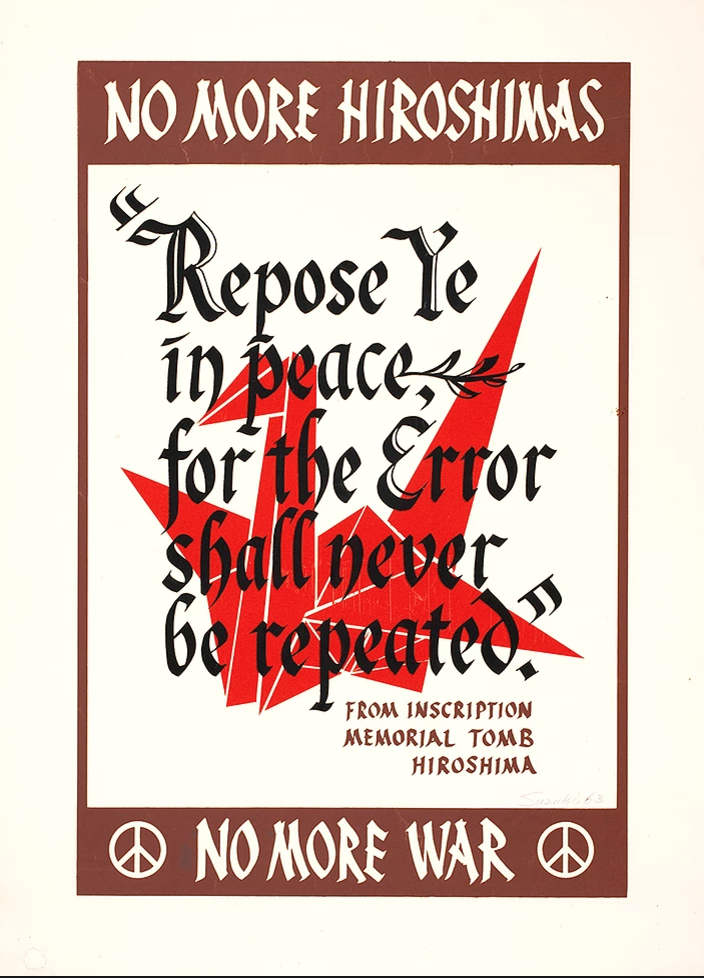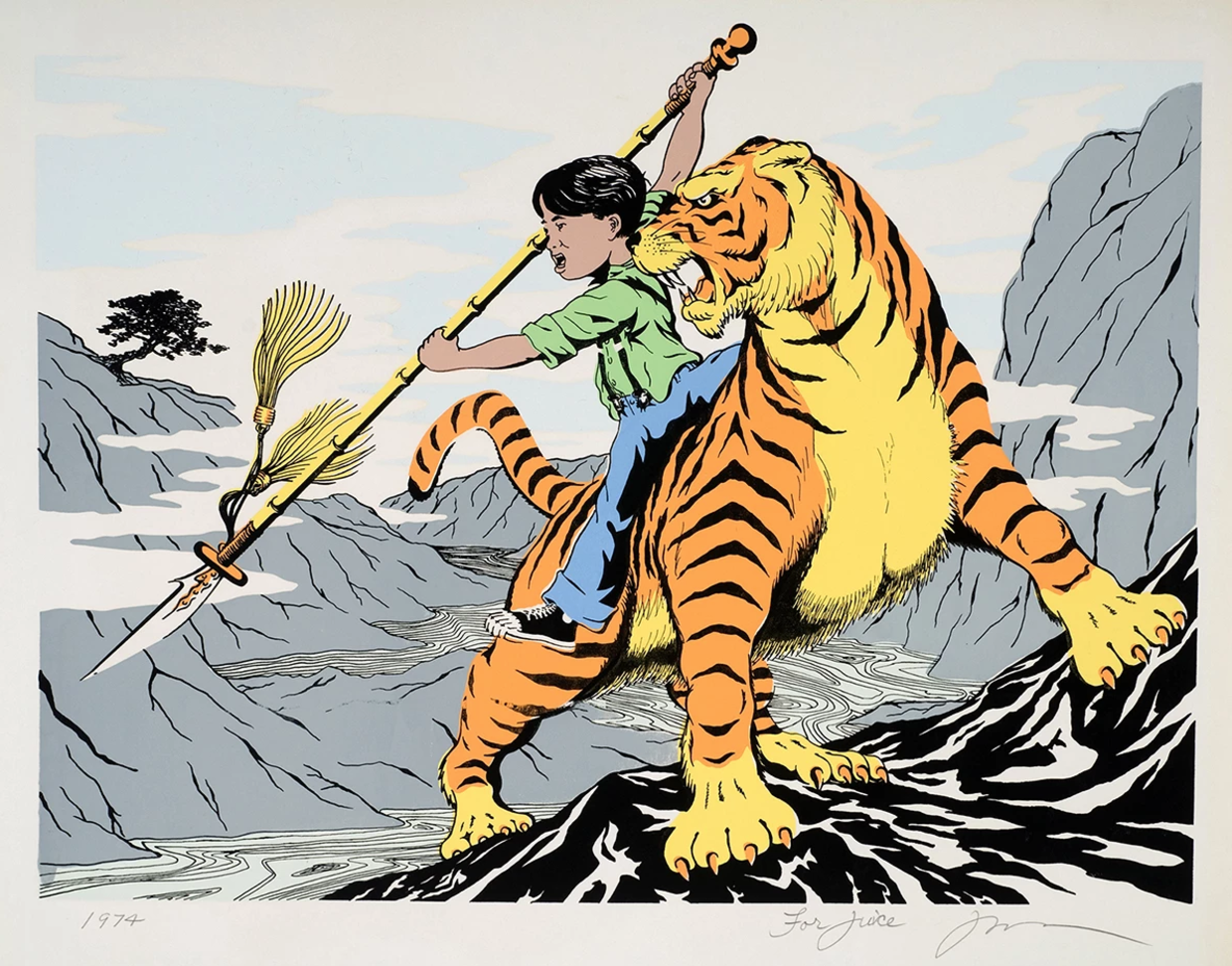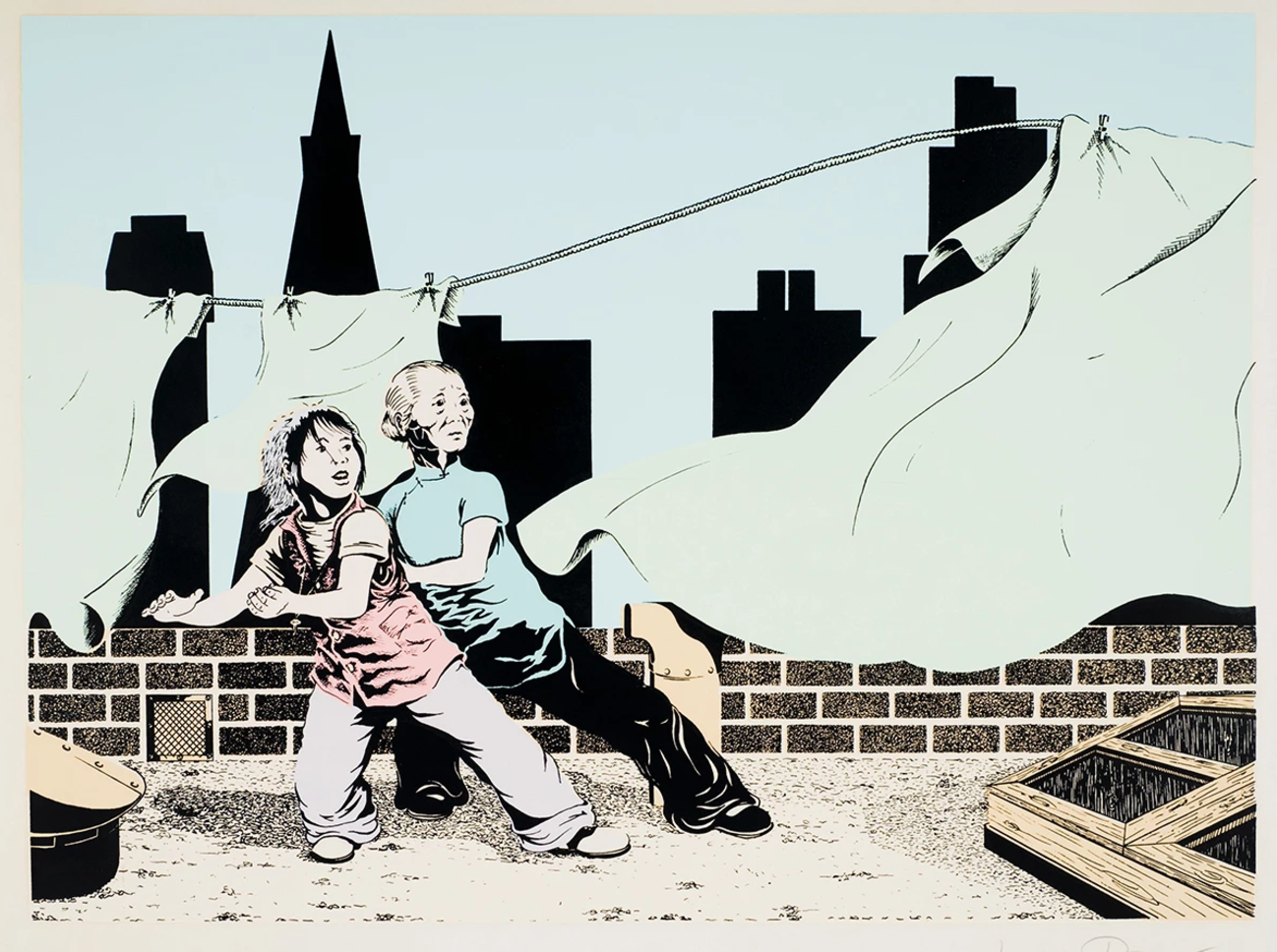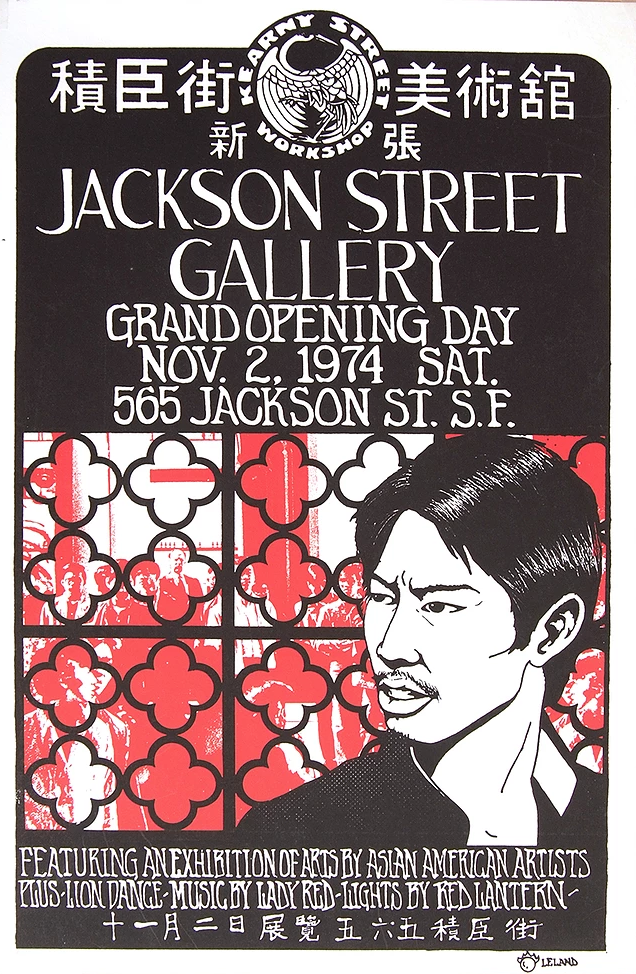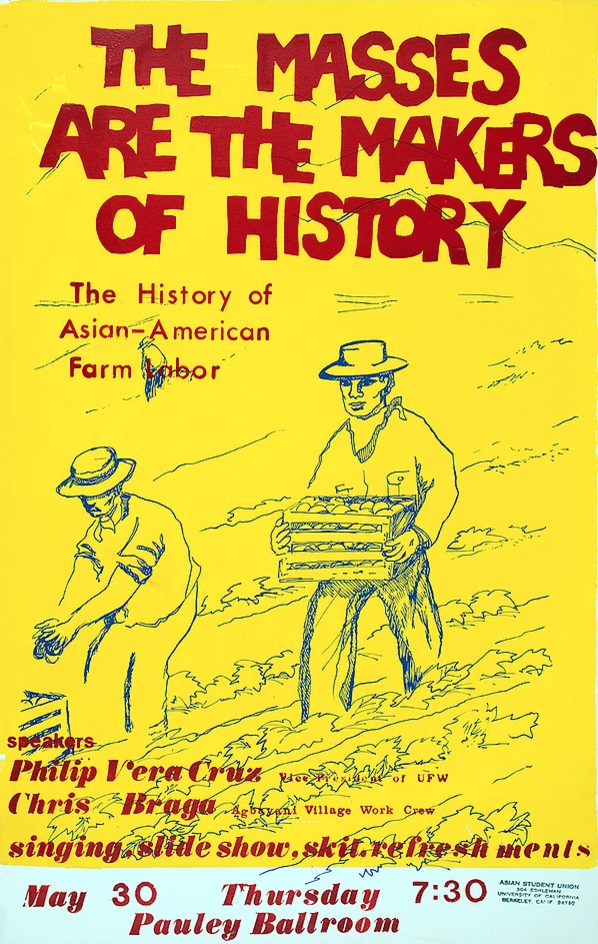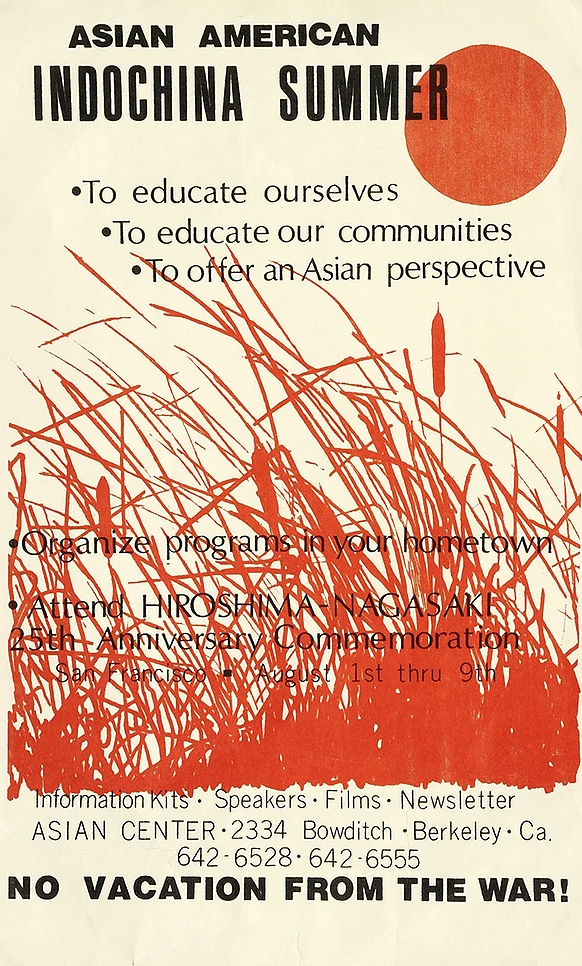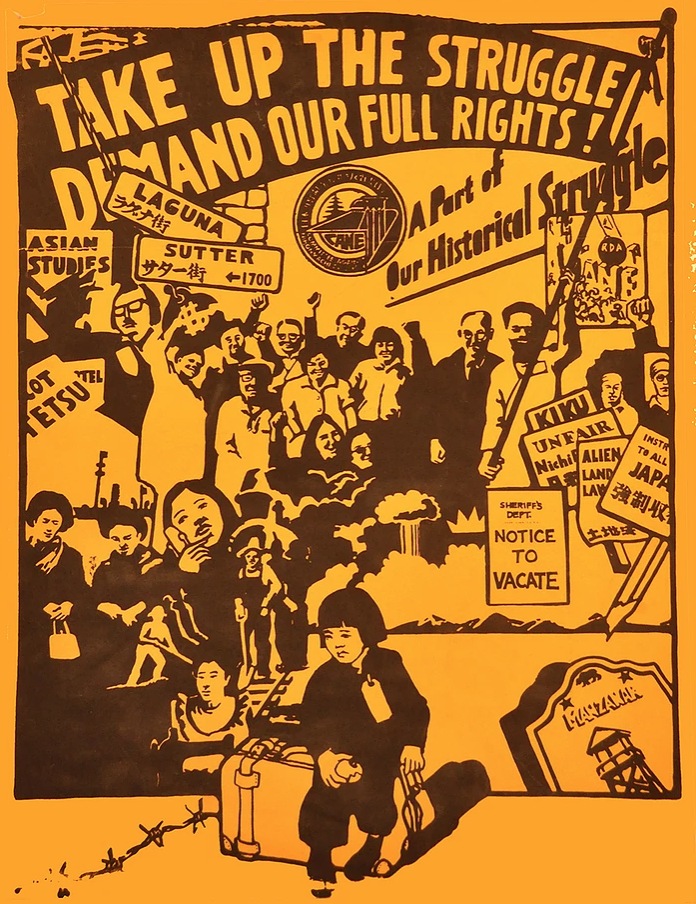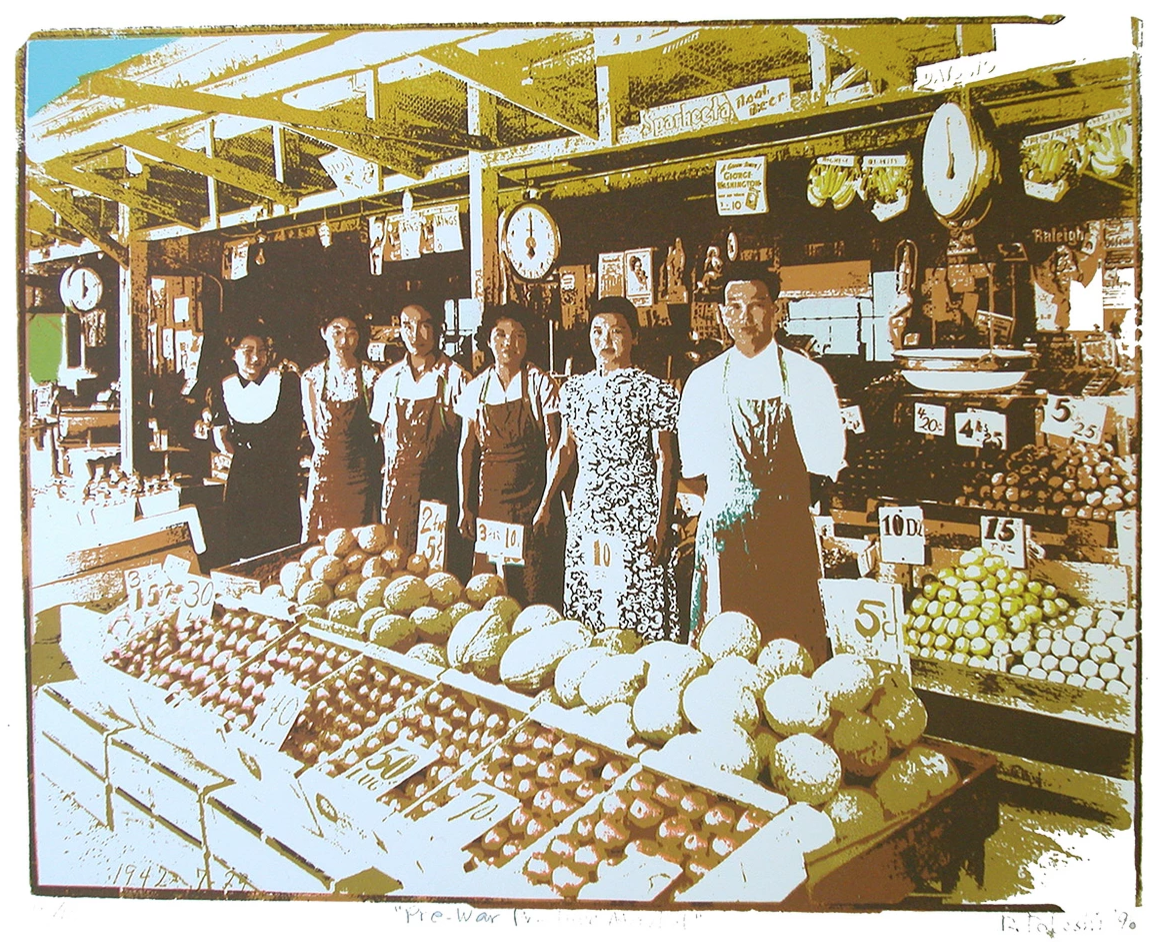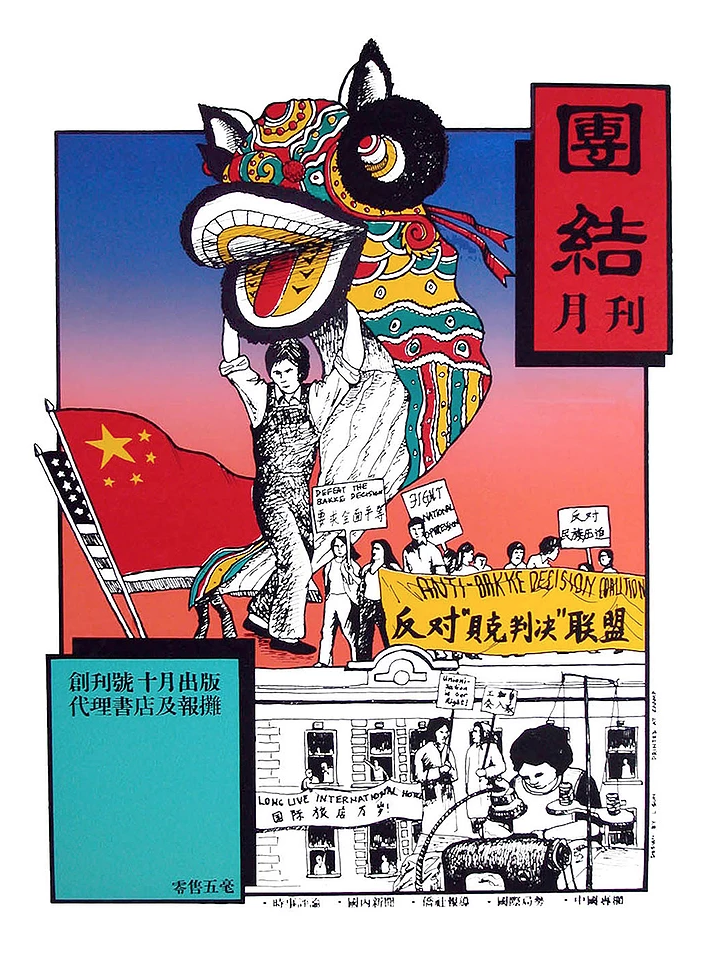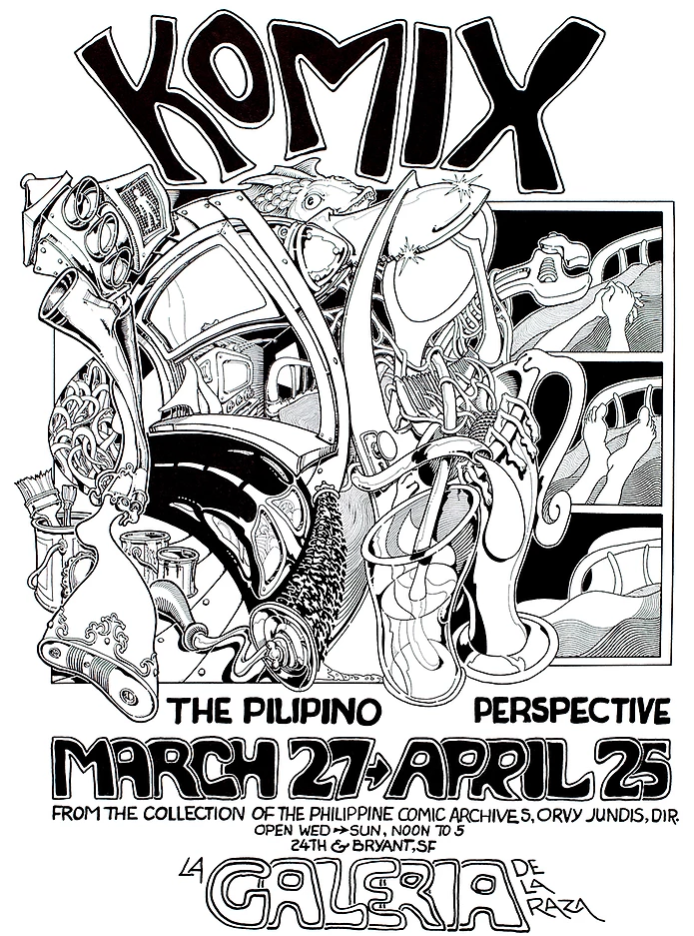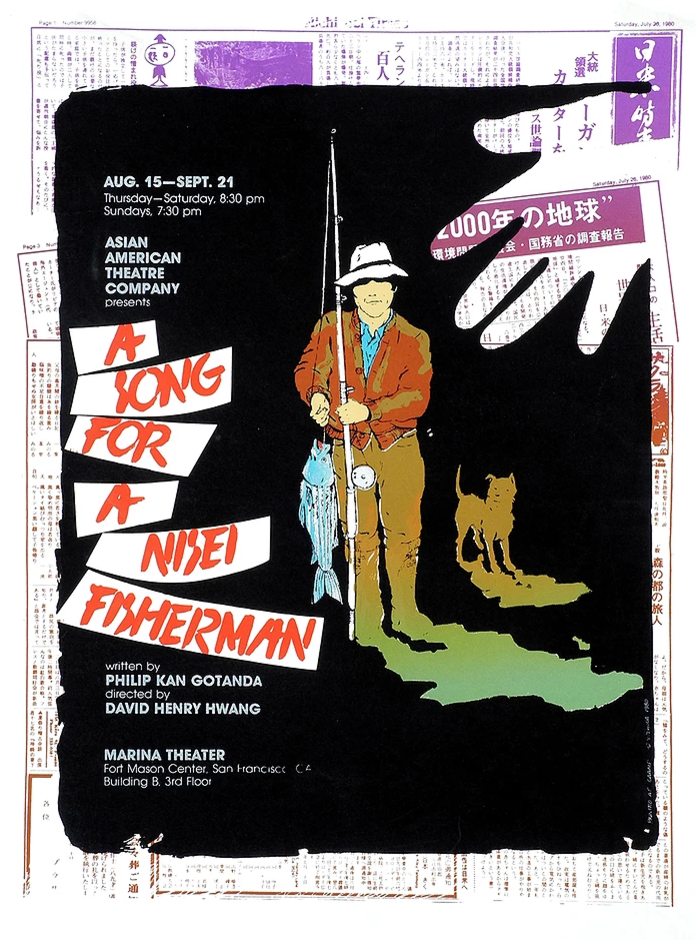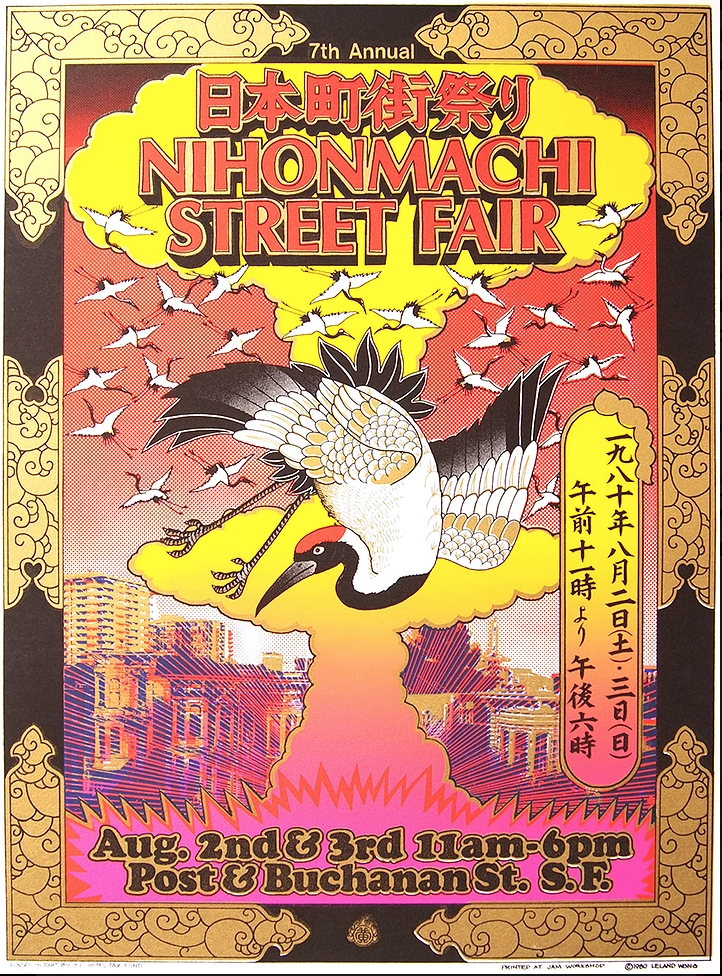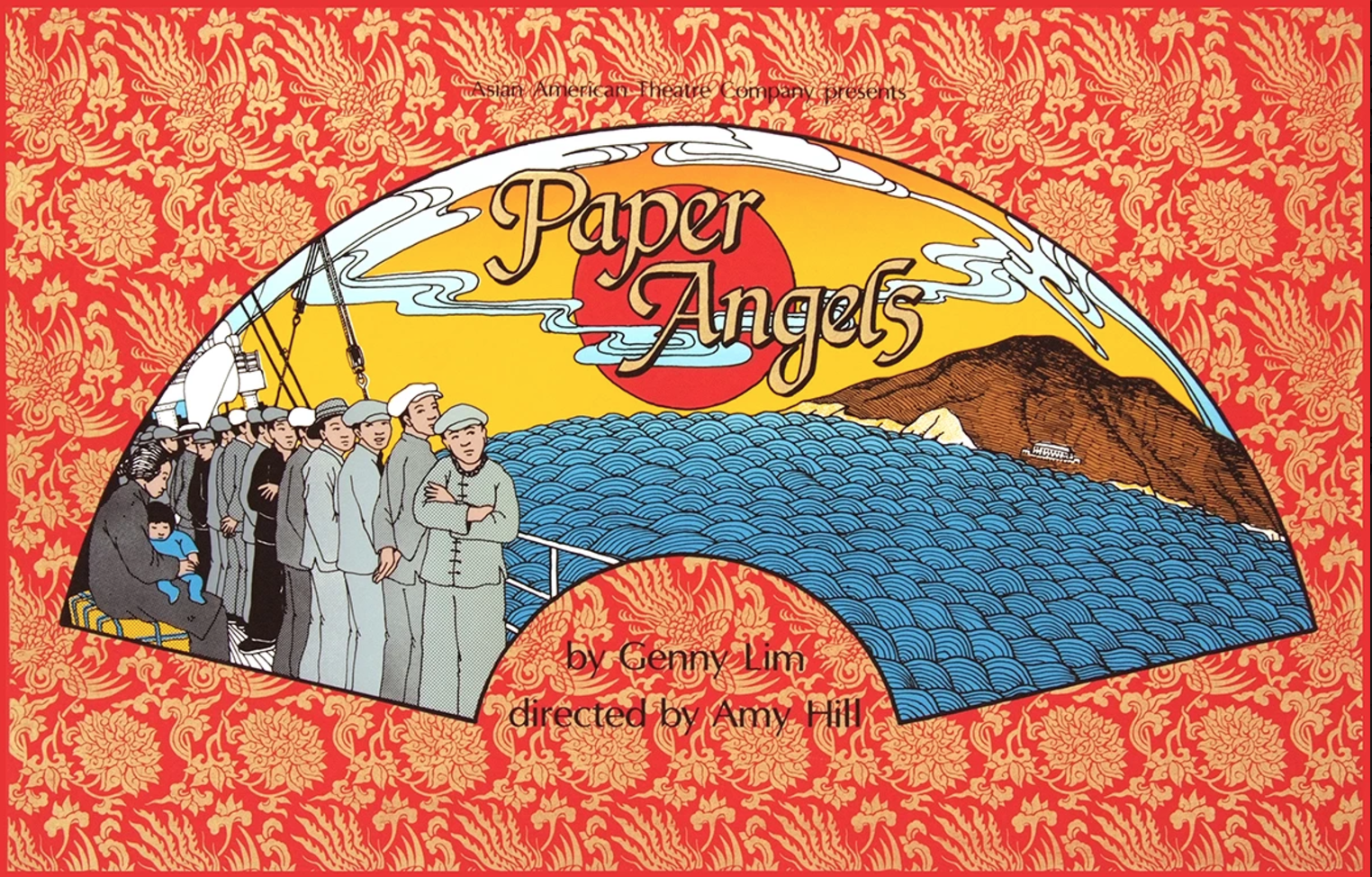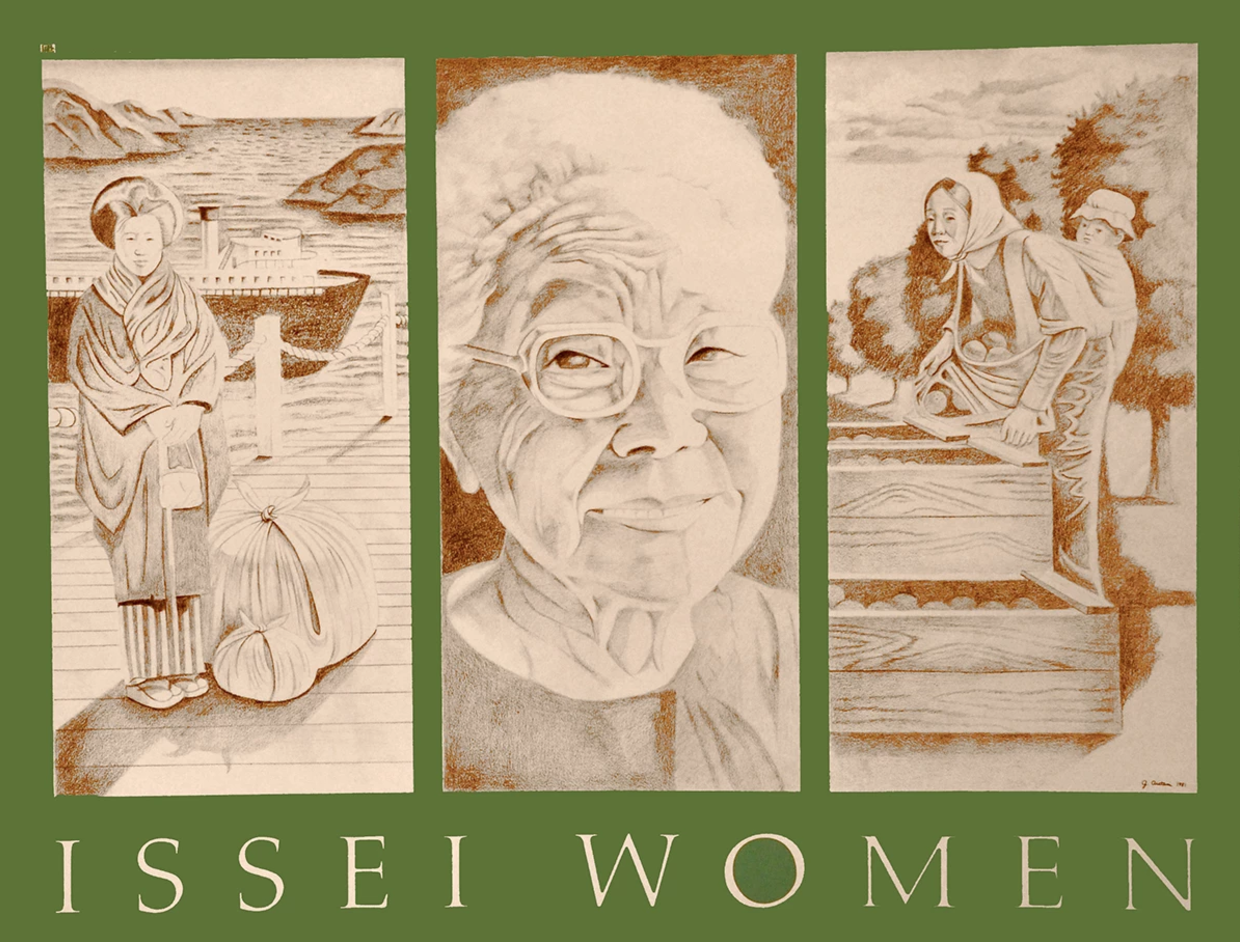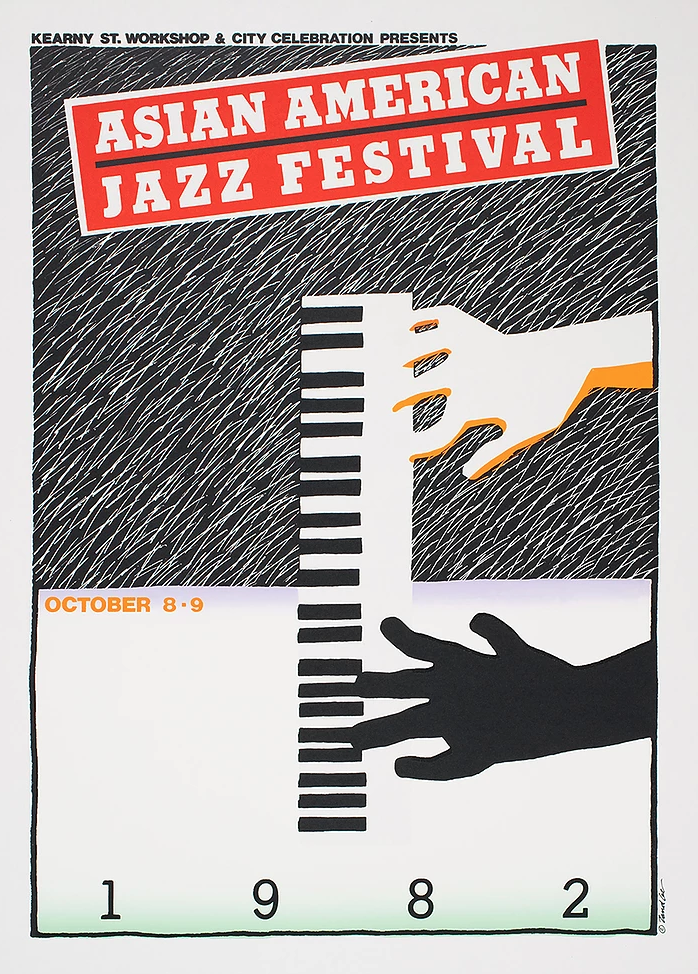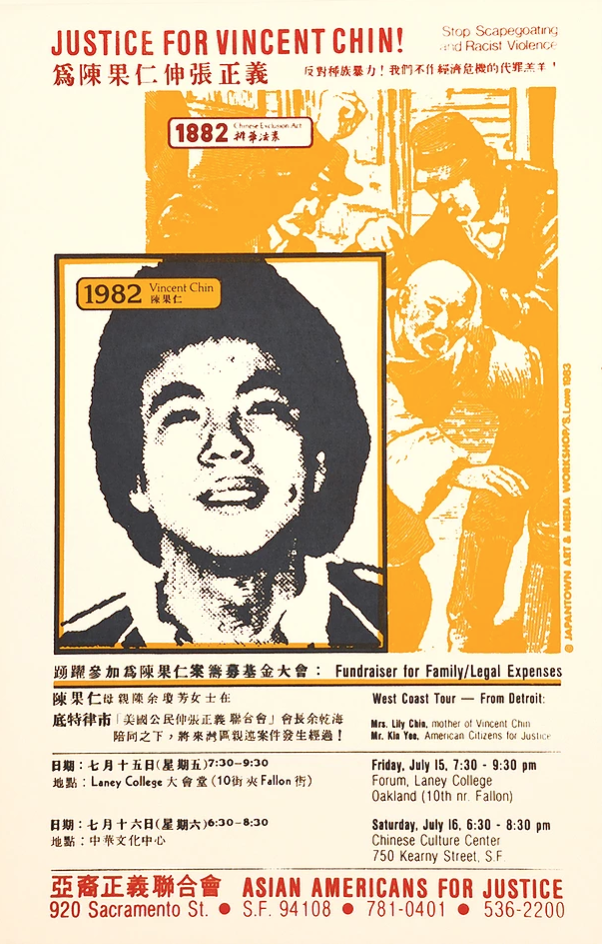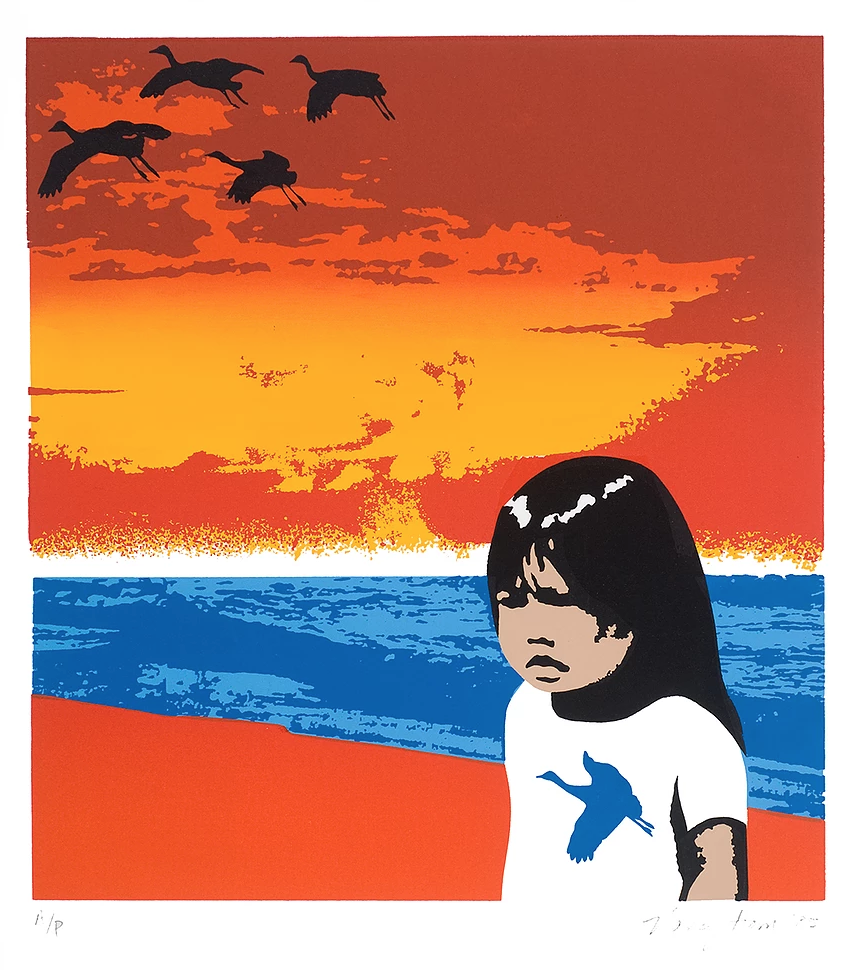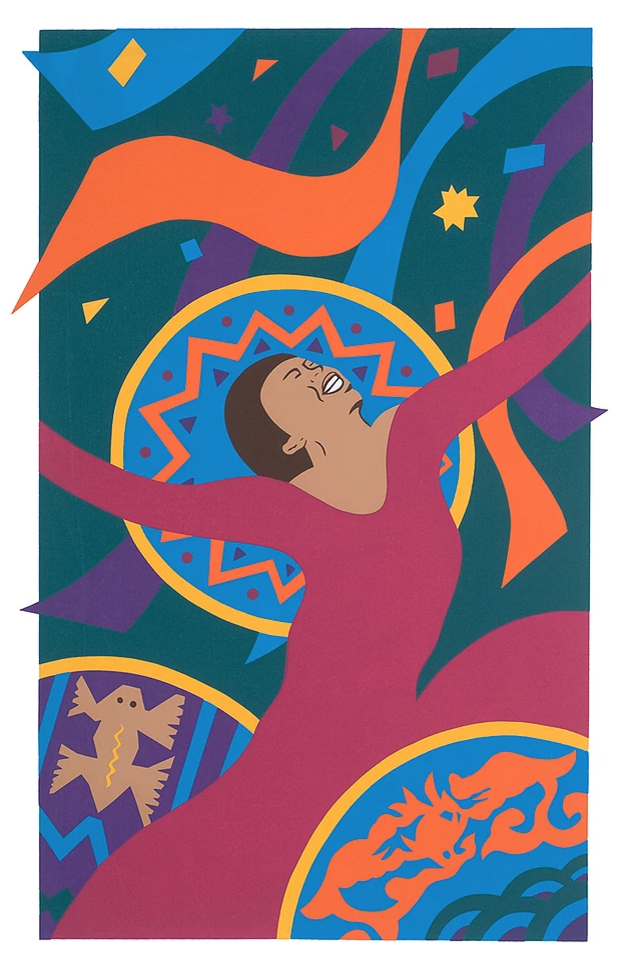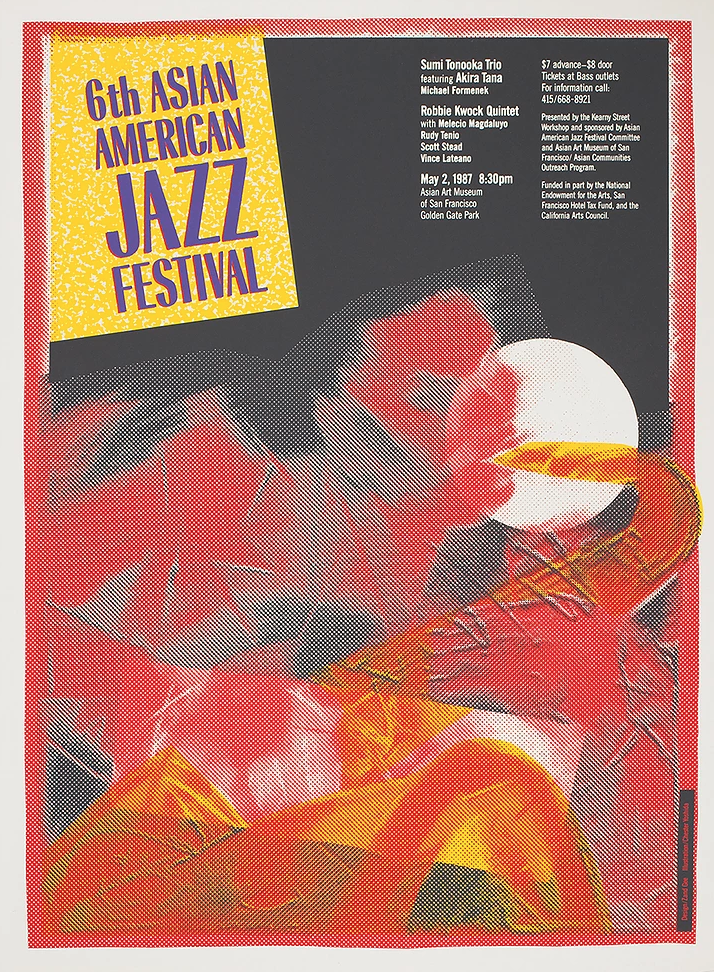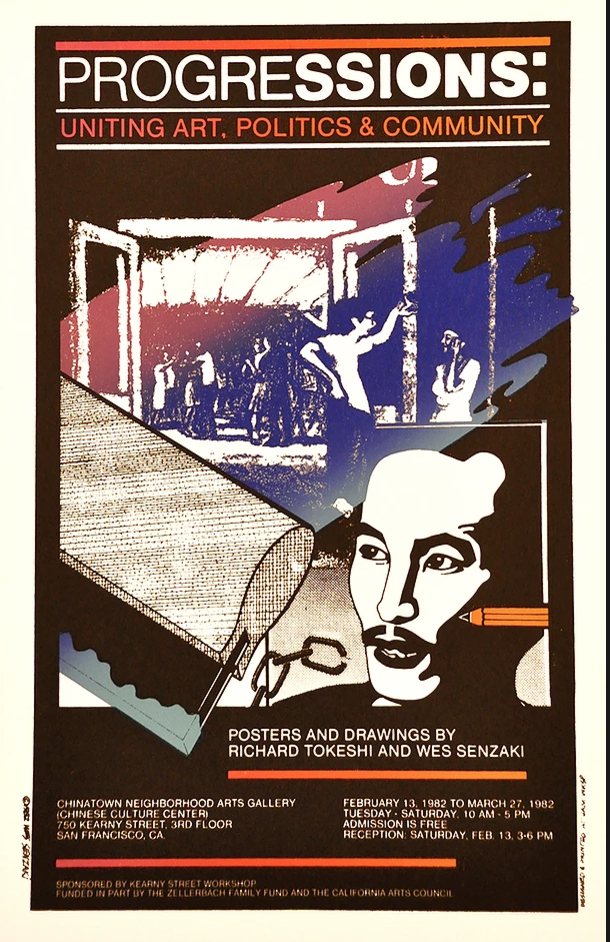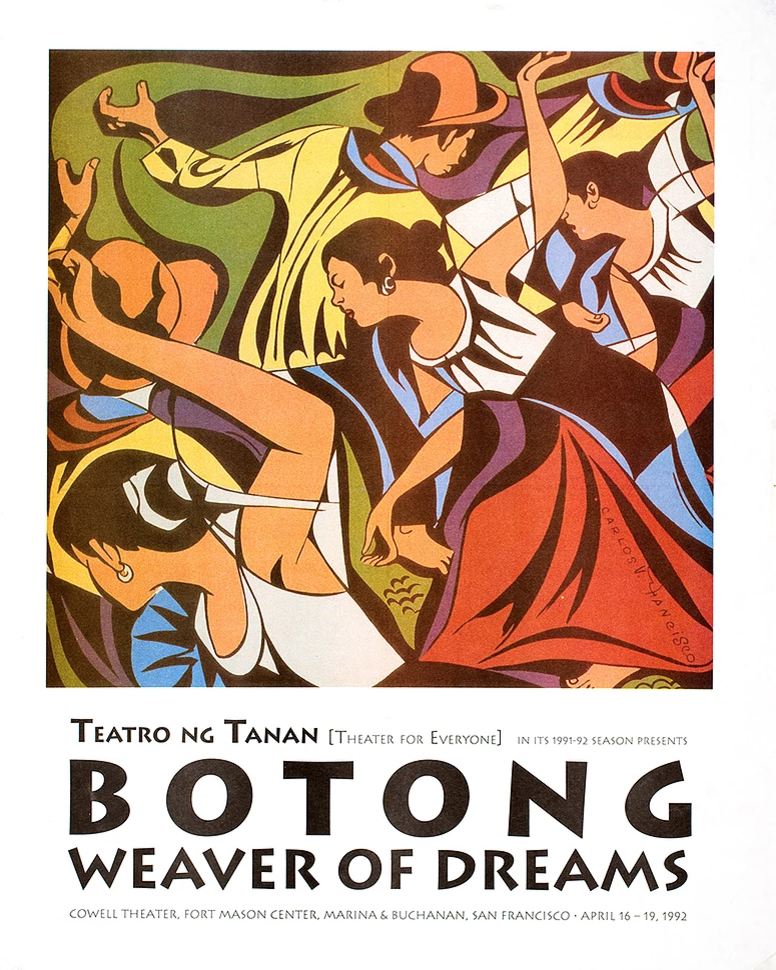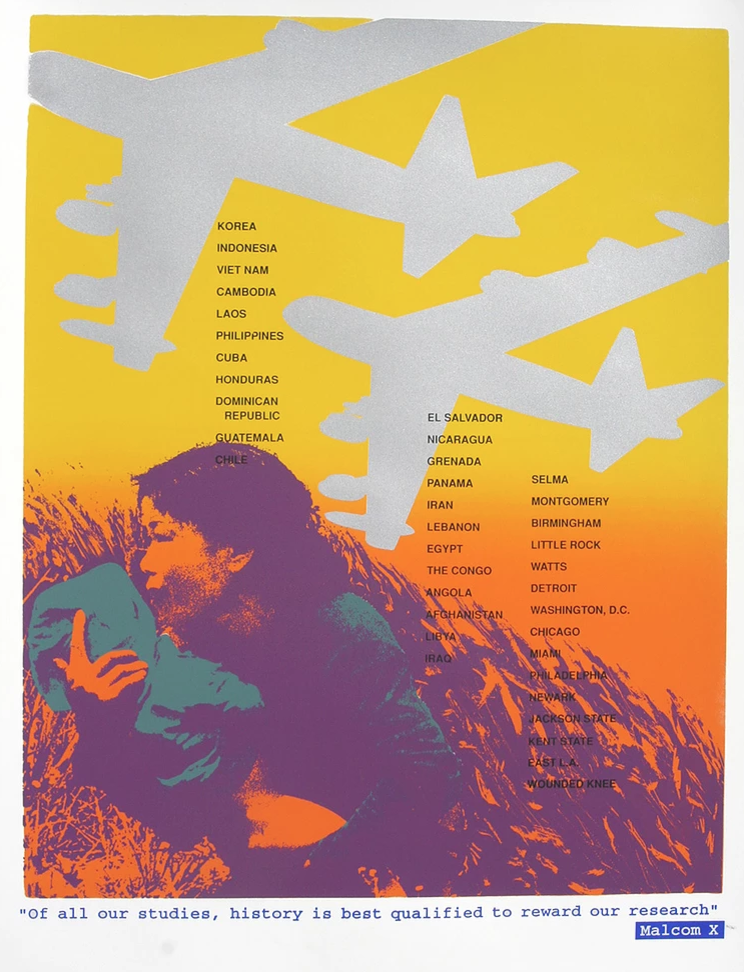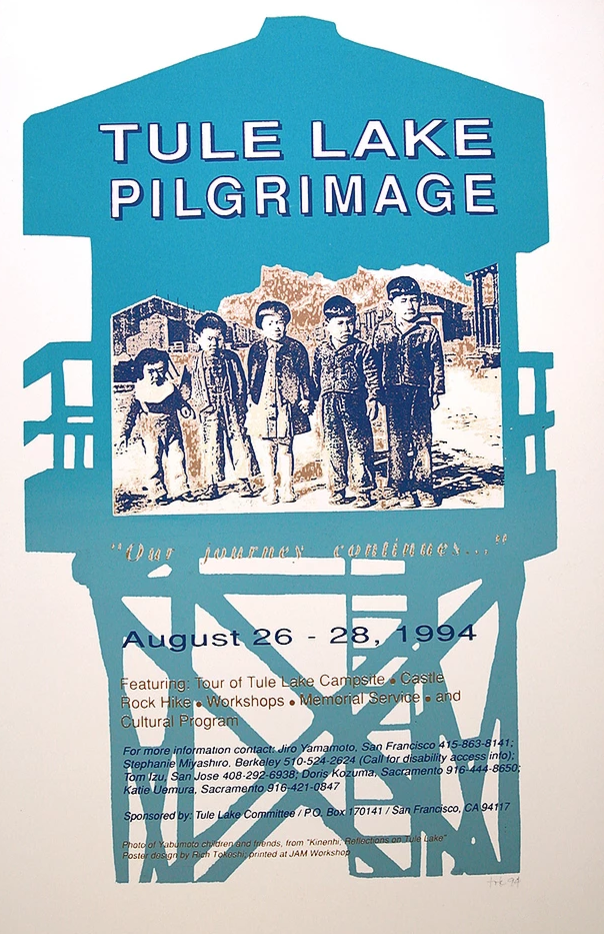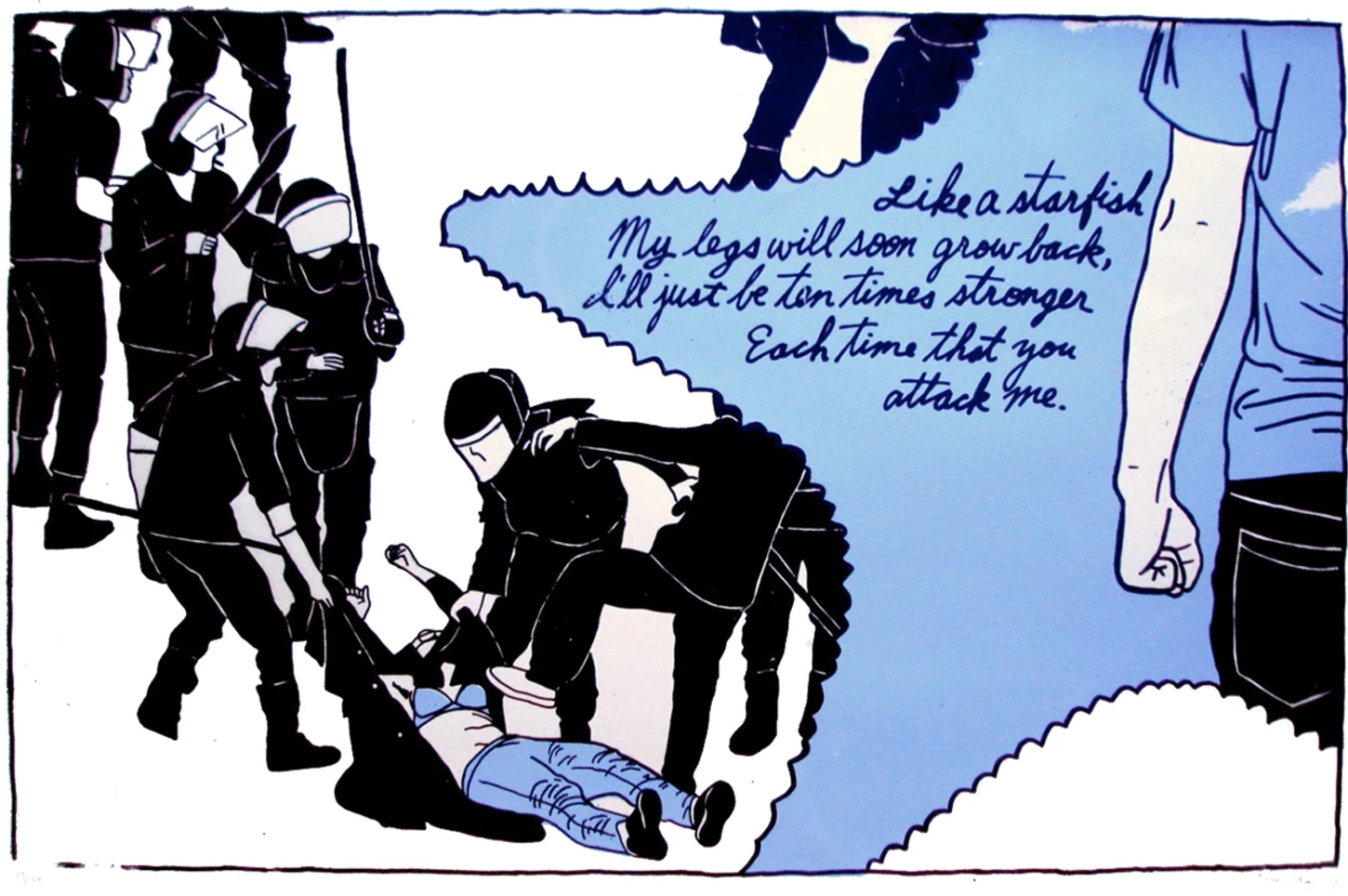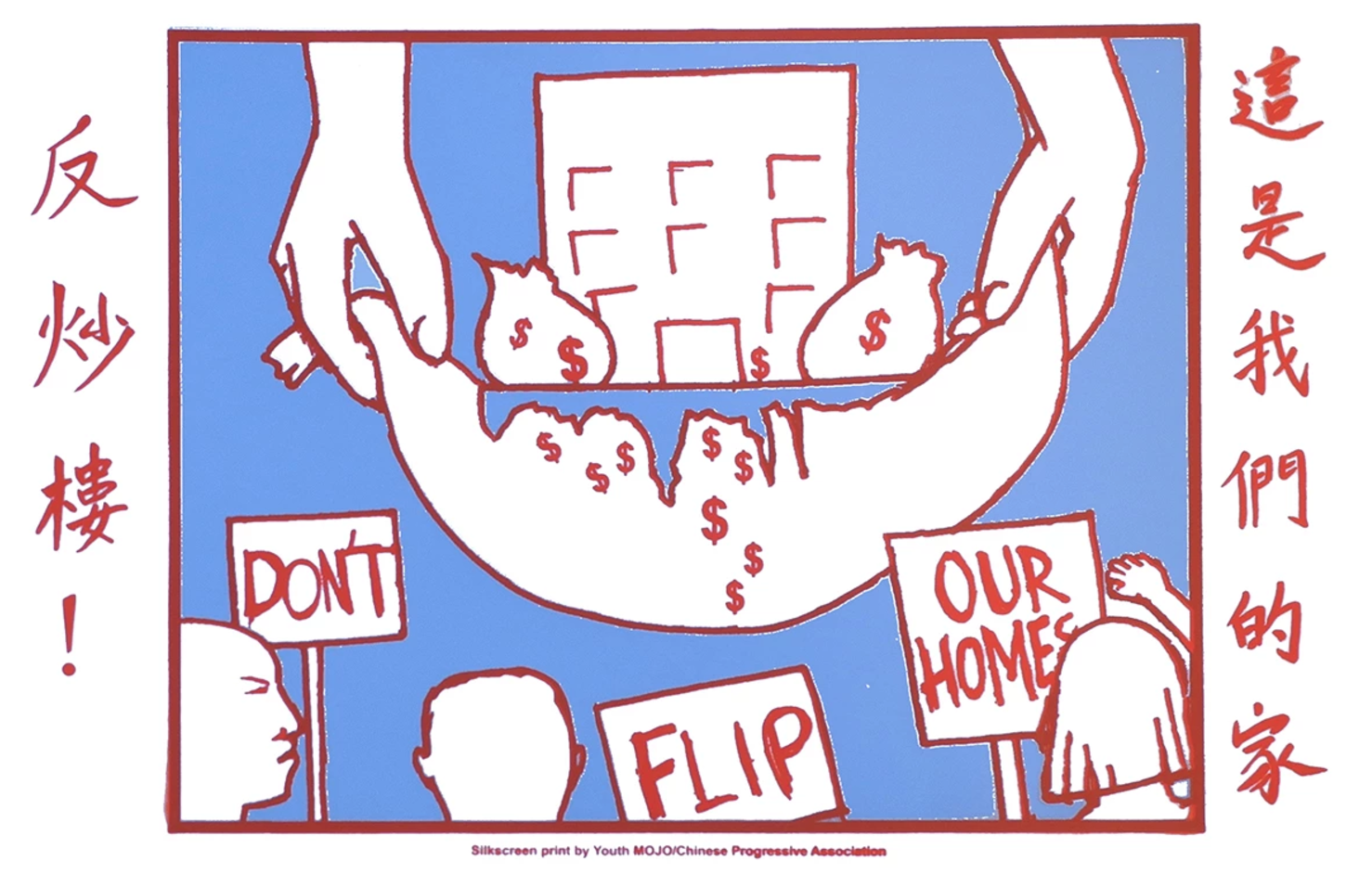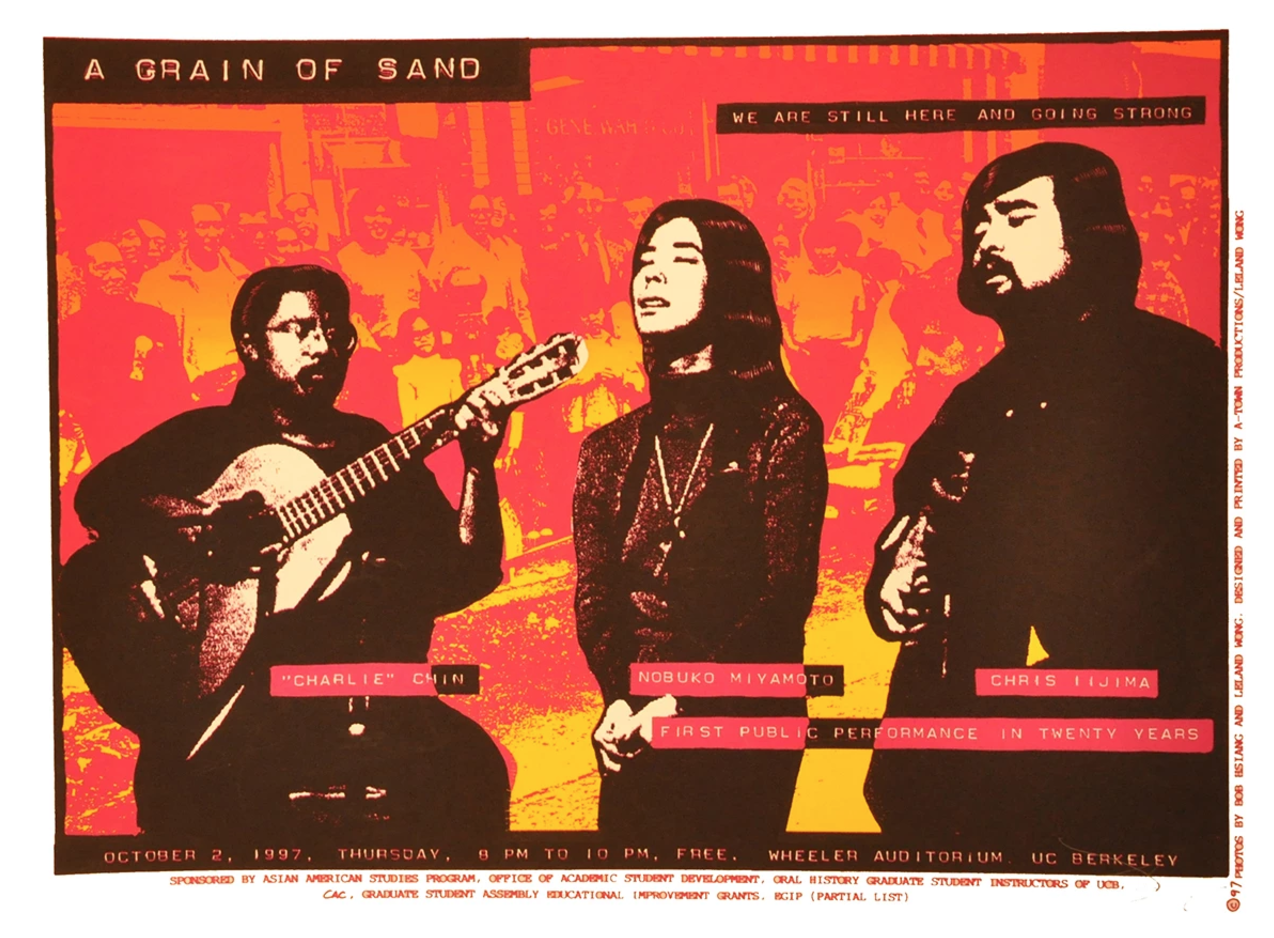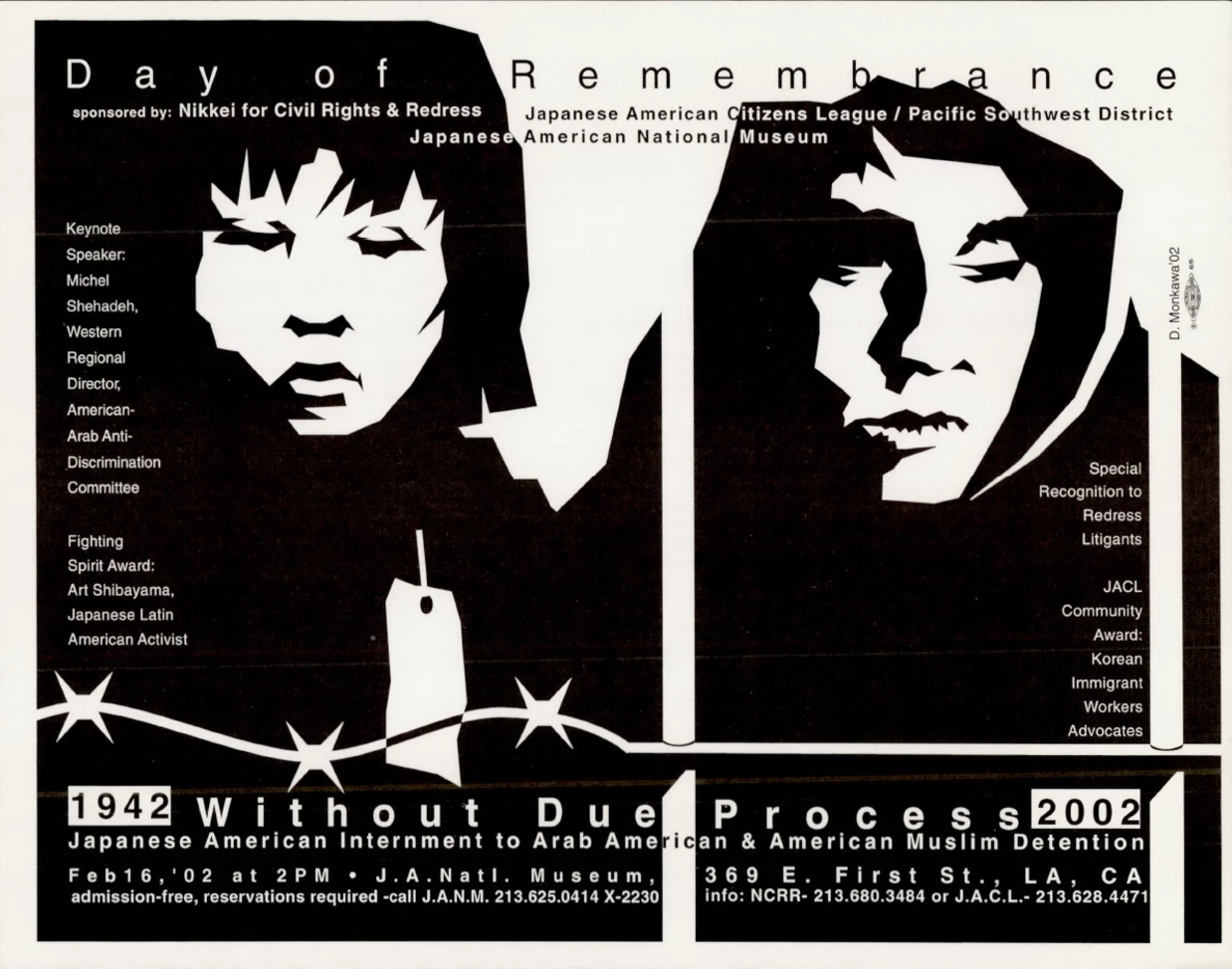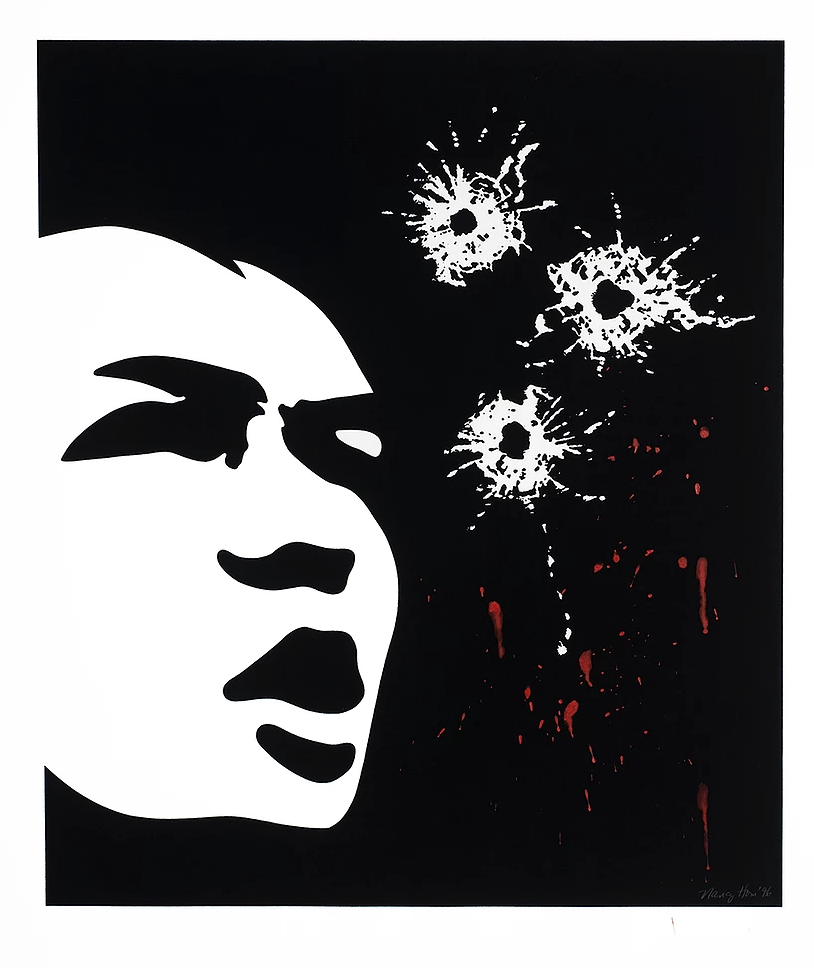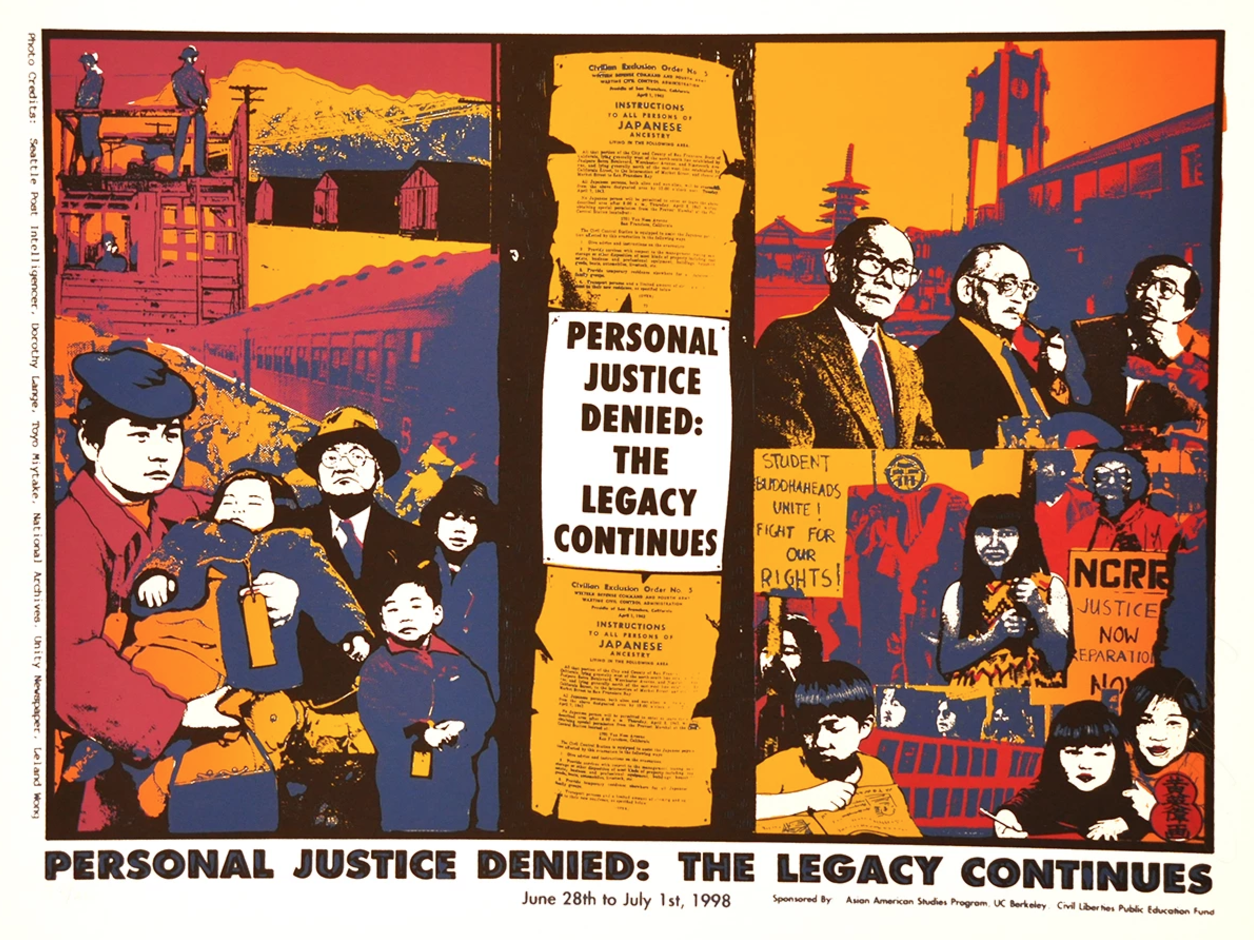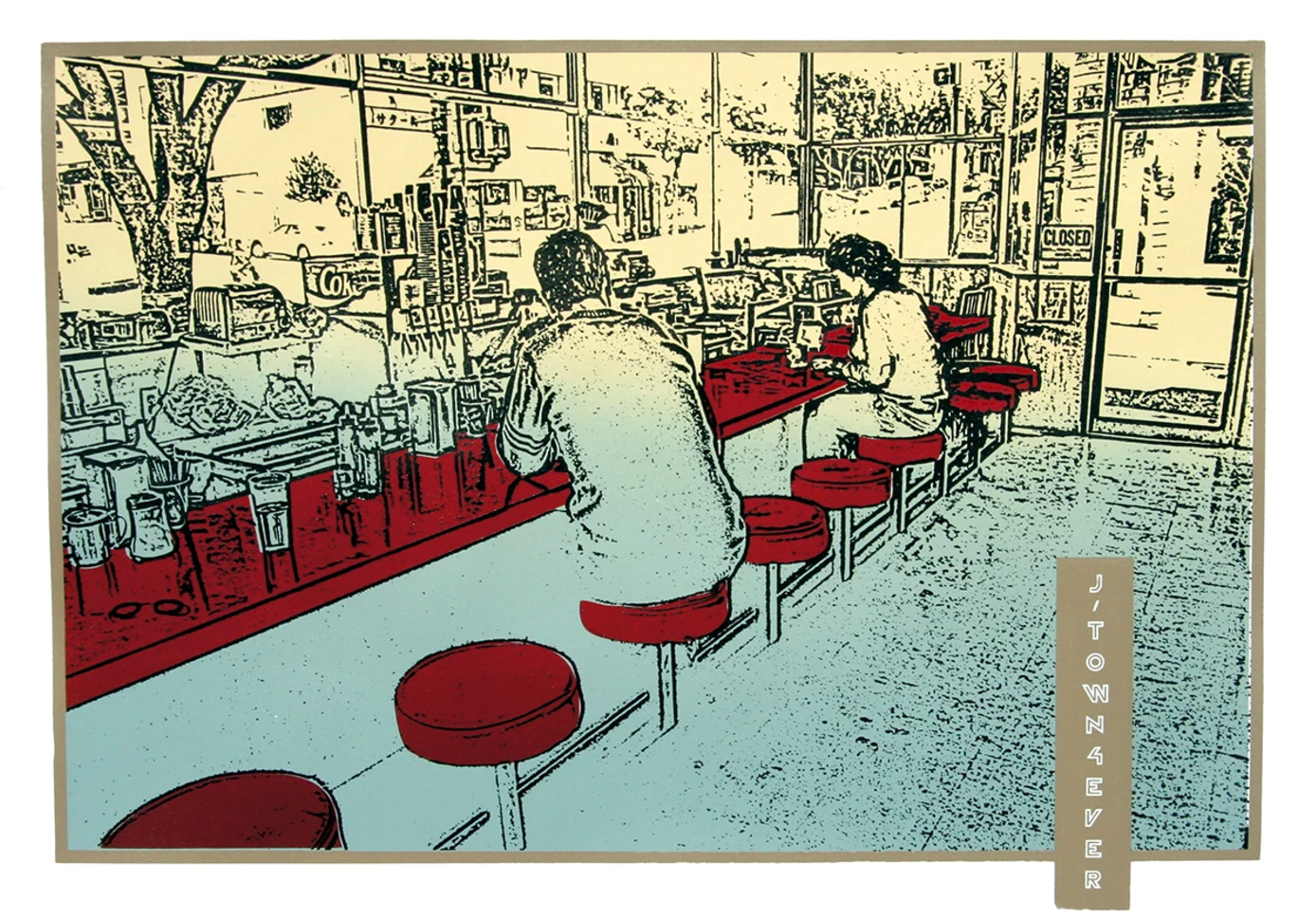RECLAIMING OUR ROOTS
Silkscreened Posters from the Movement 1963-2014
Screenprinted poster art was an integral part of the Asian American Movement. As a medium, it was almost synonymous with political expression, with “political” being broadly defined. It brought together artists of different mediums, such as photography, drawing, and graphic design. The final production process itself required teamwork and collective action. Screenprinting was affordable and accessible to both experienced and emerging artists. It brought people together and was embraced by the communities in which the artists and workshops were based.
The artwork drew inspiration from many sources – from the cultures we inherited from our respective motherlands and from the direct experience of our community elders in the U. S. We drew freely from each other’s cultures within the Asian communities and from without. Chicano/Latino artists were a major influence and inspiration. Anti-war, Civil Rights, Black Liberation and women’s struggles informed much of our politics. While there was always lively debate reflecting different social perspectives, there was a pervasive sense of cultural democracy and Third World, working class solidarity.
During this period the San Francisco Bay Area had three screenprinting workshops where the bulk of these posters were printed: Kearny Street Workshop (KSW), Japantown Art & Media Workshop (JAM Wksp) and the Community Asian Art & Media Project (CAAMP). KSW and JAM Wksp were located in San Francisco’s Chinatown-Manilatown and Japantown, respectively. CAAMP, an offshoot of JAM Wksp, was based in Oakland Chinatown.
This exhibit does not claim to project a comprehensive or definitive narrative of the Asian American Movement. The small sampling of posters is only meant to give a glimpse into the issues of the times and how artists gave voice to them. Representation of some important events is notably absent. For practical reasons we limited the scope of this modest exhibit to silkscreened posters from the San Francisco Bay Area, but a couple of exceptions were made to show the range of topics that Asian American artists addressed.* Acquisition has been difficult because many of the posters were not widely seen as collector items in their time and have presumably been lost. As the exhibit moves online, it will expand and diversify over time, with input from many of the artists themselves.
Leon Sun | April, 2015
* Lewis Suzuki’s and David Monkawa’s posters were offset printed. David Monkawa is a Los Angeles artist.

